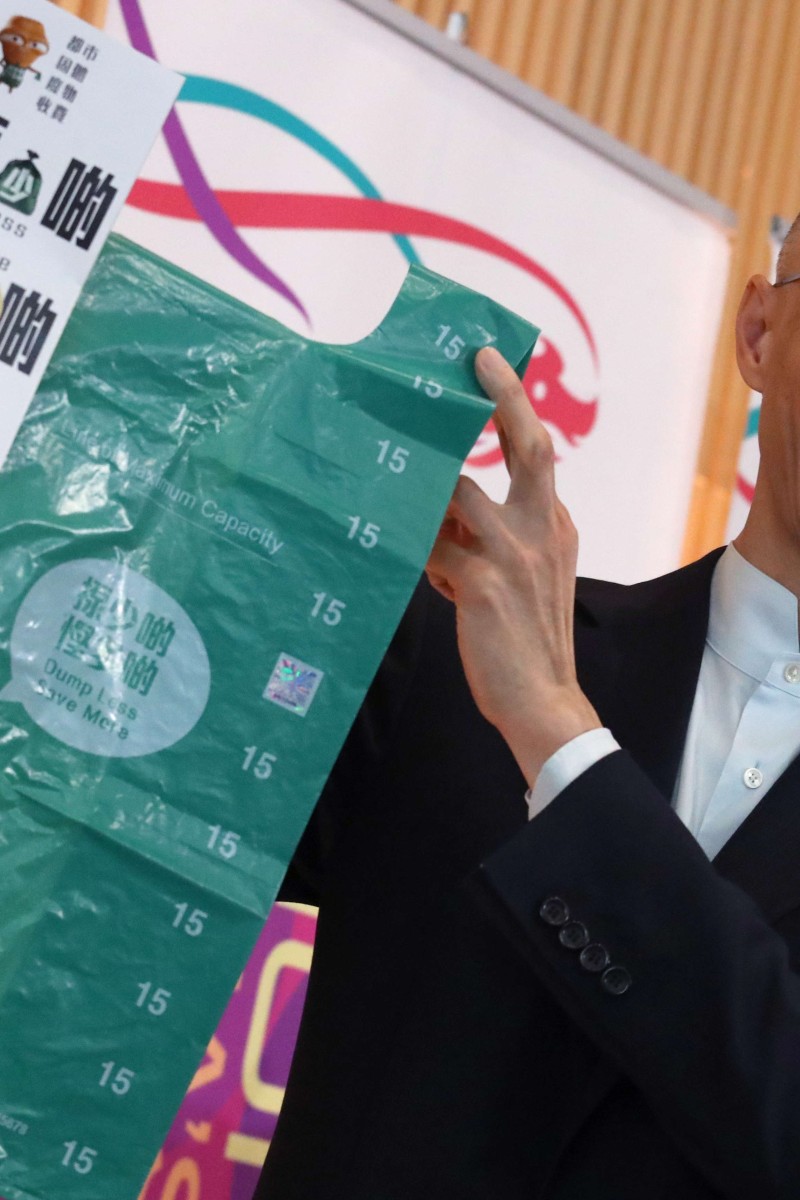
Face Off: Should a levy be imposed on waste disposal?
Each week, two of our readers debate a hot topic in a parliamentary-style debate that doesn’t necessarily reflect their personal viewpoint. This week’s topic is ...
 Secretary for the Environment Wong Kam-sing briefs the public on the implementation of municipal solid waste charging plan.
Secretary for the Environment Wong Kam-sing briefs the public on the implementation of municipal solid waste charging plan. Patricia Abundo, 19, University of Nottingham Ningbo, China
According to the government, Hong Kong generates more than six million tonnes of solid waste each year. A majority of it is disposed in the city’s three landfills, which are filling up very fast.
To tackle this problem, the government has proposed a waste disposal levy, which will come into effect in the second half of 2019.
Several countries, including Australia and New Zealand, and other major Asian cities such as Taipei, Seoul and Singapore have introduced such a tax which has helped reduce wastage, according to green groups.
I believe this kind of levy will encourage citizens to reduce wastage and promote recycling.
For example, Taipei has been following a quantity-based charging system since 2000, depending on the weight or volume of waste produced by individuals. People there have to use special plastic bags when they throw away their rubbish. Over a period of 10 years, the scheme helped cut down the daily wastage per person by 60 per cent – from 1.12kg to 0.39kg. Their recycling rate also rose 41.6 per cent.
Some may insist on building new landfills or increasing the number of incinerators, but they won’t solve our waste problem. What happens when the new landfills become full as well? We will be faced with the same problem. What’s more, building new incinerators will cost a lot of money and they are not environmentally friendly.
Most importantly, the “user pays” principle means that we will have to change our habits and try to reduce waste. Some people just dump their rubbish without thinking twice. But with the new levy, they’ll have to think about recycling their waste or finding ways to reduce it.
Waste management is an urgent issue. If we don’t do anything, we could be sitting on a mountain of rubbish. I fully support the government’s decision to impose a waste-disposal levy.
Tacye Hong, 19, University of Toronto, Canada
The proposed levy will cause nothing but chaos for both the citizens and the government, and it is certainly not the most efficient method to reduce waste. Not only will it cost around HK$40-HK$50 for a family per month, the officials will find it is very costly and difficult to enforce the regulations.
The main objective of the scheme is to charge people whenever they throw away waste. But they will find ways to get around that. Unless the Hong Kong government takes extreme measures such as removing all rubbish bins from the city, citizens can sneakily dump their rubbish at these places. This could cause serious problems for our society. The government might then have to tax people more heavily because more workers would be needed to clean up the streets. The government might even need to set up countless surveillance cameras to monitor illegal garbage dumping and prosecute the offenders.
To deter people from disposing garbage randomly, some estate management companies have already said they would have to increase management fees by around 10 to 20 per cent because of the inevitable increase in administrative costs. Although a hefty fine will be imposed on offenders, it is extremely unfair to homeowners who follow the law.
Even though the amount of garbage might drop significantly at first because of the “price shock”, the effect will certainly level off as families begin to adjust to the new levy. This means that the scheme will not be successful in the long run. Also, an average family is bound to produce some waste; the scheme will not be able to eliminate it.
Instead of punishing citizens, the government should change the law to make sure supermarkets do not use too much packaging in their products. Looking back at the Kotoka Strawberry Gift Box that made headlines around the globe earlier this year, it’s clear that overpackaging is one of the major contributors to the horrifying amount of waste produced in Hong Kong.